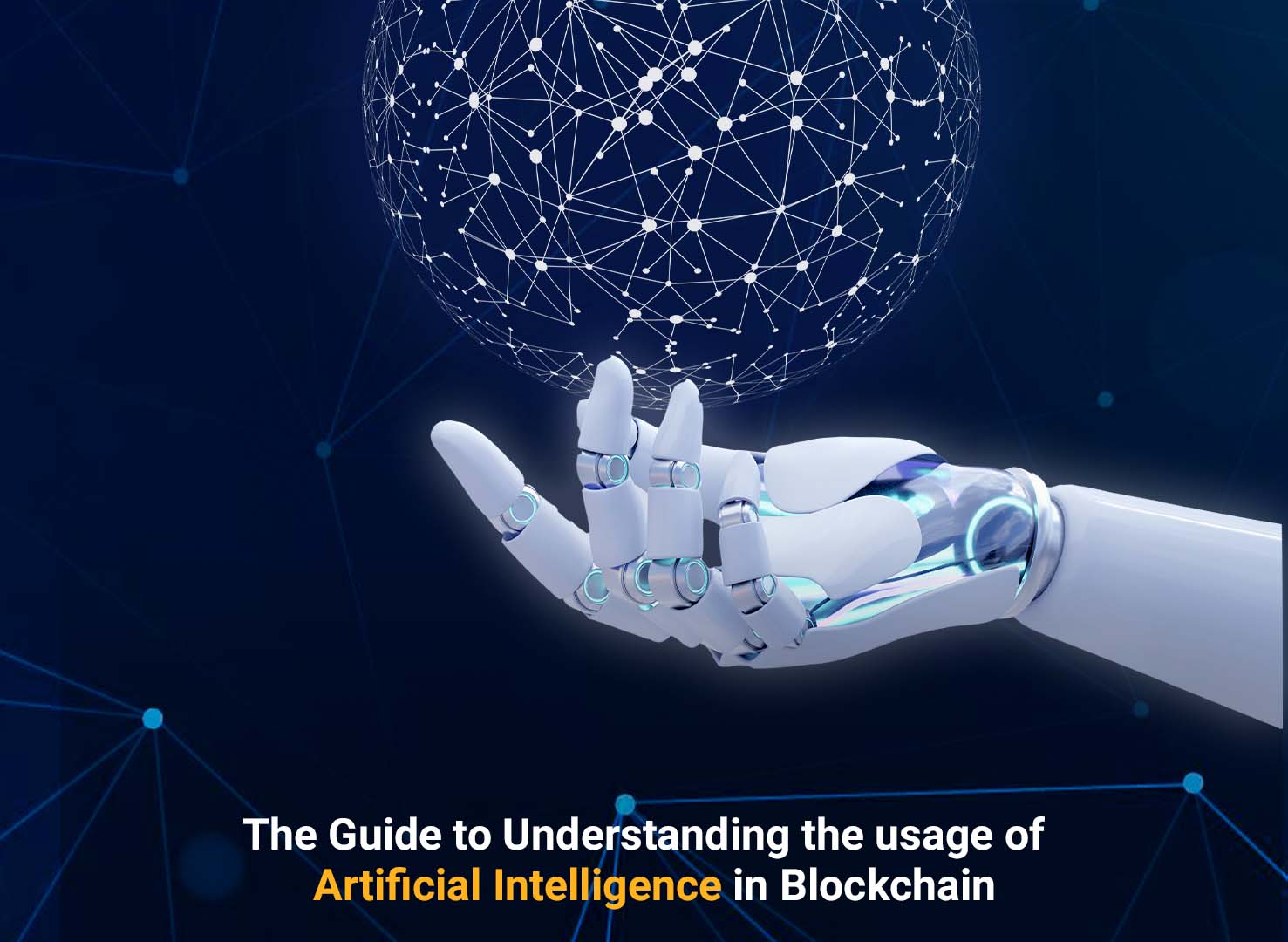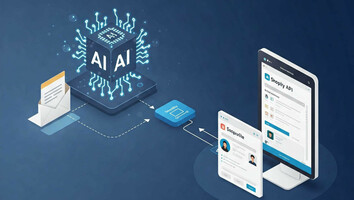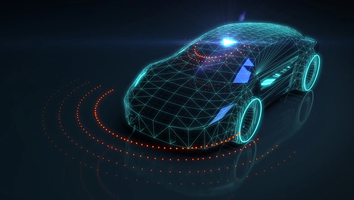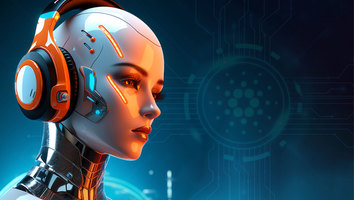Blockchain and artificial intelligence are combining to modernize everything from food supply chain operations to healthcare record sharing to media royalties and financial security.
The combination of AI and blockchain development solutions has many implications, including security: AI and blockchain will provide a second layer of protection against cyber-attacks.
But that’s not the end here!
This post will teach you their definitions, meanings, use cases, and applications to give you a proper overview of both emerging technologies.
What is Blockchain?
Blockchain is a distributed, immutable ledger that allows many parties to communicate encrypted data in a real-time, shareable, and transparent manner as they initiate and finish transactions. Orders, payments, accounts, production, and much more may all be tracked using a blockchain network. Permissioned members gain confidence and trust in their dealings with other firms, as well as new efficiency and opportunities because they share a single vision of the truth.
What is AI?
Artificial intelligence uses computers, data, and sometimes machines to simulate the human mind's problem-solving and decision-making abilities. It also includes the subfields of machine learning and deep learning, which employ AI algorithms that are trained on data to produce predictions or classifications and improve over time. Automation of monotonous activities, improved decision-making, and a better customer experience are all advantages of AI.
What Improvements Can AI Bring When Collaborating with Blockchain?
Here’s the list of improvements that AI may bring when clubbed with blockchain development services.
- Security
Blockchain technology grows safer as AI is implemented, allowing for secure future application deployments. One example is AI algorithms that are increasingly deciding whether financial transactions are fraudulent and should be stopped or probed.
- Trust
One of the blockchain development solution’s unique selling points is its iron cast records. When used in conjunction with AI, users gain access to detailed records that allow them to track the system's thought process. As a result, the bots become more trusting of one another, enhancing machine-to-machine contact and allowing them to share data and make large-scale judgments.
- Storage
Blockchains are perfect for storing extremely sensitive, personal data, which can offer value and convenience when intelligently handled with AI. An excellent example is smart healthcare systems that make a correct diagnosis based on medical scans and records.
- Improved Management
Human experts become stronger at cracking codes over time as they practice. If given the necessary teaching expertise, a machine learning-powered mining method can almost eliminate the need for human experience. As a result, AI aids in the better management of blockchain networks.
- New Markets and Privacy
Making private data secure almost always leads to its sale, culminating in data/model markets. Markets get access to simple, secure data sharing, which aids smaller companies in gaining a competitive advantage. The privacy of blockchain can be further enhanced by using "Homomorphic encryption" techniques.
Applications of AI & Blockchain
Listed below are the applications of AI & Blockchain development services:
-
Creating a Wide Range of Data Sets
In a public blockchain network environment, unlike computing-based projects, blockchain technology generates suburbanized, transparent networks that can be accessible by everyone, anywhere in the world. It would be possible to communicate with A.I. agents by putting the Associate in Nursing API of APIs on the blockchain. As a result, numerous algorithms based on various knowledge sets may be developed.
-
Data Security
AI receives facts about the world and what is happening in it through knowledge. Knowledge nourishes AI, and AI will be able to better itself over time as a result of it. Blockchain, on the other hand, is a technology that enables the encrypted storing of data on a distributed ledger. It enables the establishment of fully secured databases that can only be accessed by those who have been permitted to do so.
-
Putting Faith in AI Decision-Making
There are immutable recordings of all the data, variables, and processes used by AIs for their decision-making processes thanks to blockchain technology. This makes auditing the entire process a lot easier. All steps from data entry to conclusions may be viewed using blockchain programming, and the viewing party can be confident that the data has not been altered.
Use Cases for Blockchain and AI
Here’s the list of use cases for Blockchain development services and AI in different industry verticals:
- Life Sciences
In the pharmaceutical business, blockchain and AI can improve drug supply chain visibility and traceability while also drastically raising clinical trial success rates. Advanced data analysis combined with a decentralized clinical trial infrastructure allows for data integrity, transparency, patient tracking, consent management, trial participation and data collection automation.
- Healthcare
AI can assist in developing practically every discipline in healthcare, from exposing therapeutic insights and supporting user demands to recognizing insights from patient data and showing patterns. Organizations can collaborate to improve care while respecting patient privacy by storing patient data on the blockchain, including electronic health records.
- Supply Chain
AI and blockchain are revolutionizing supply chains across sectors and providing new opportunities by digitizing a mostly paper-based process, making data shareable and trustworthy, and adding intelligence and automation to perform transactions. A manufacturer, for example, can track carbon emissions data at the product or part level, enhancing decarbonization efforts with precision and intelligence.
- Financial services
By facilitating trust, removing friction from multi-party transactions, and increasing transaction speed, blockchain and AI are changing the financial services business. Consider the loan application process. Applicants give their permission for personal data to be stored on the blockchain. Faster closings and higher customer satisfaction are aided by trust in the data and automated methods for reviewing the application.
Final Thoughts
The intersection of blockchain development services and artificial intelligence is still mainly unexplored territory. Even though the convergence of the two technologies has gotten a lot of scholarly attention, there aren't many initiatives dedicated to this innovative combination.
AI has the potential to be tremendously transformative, but it must be created with extreme prudence – something that blockchain can help with greatly.



